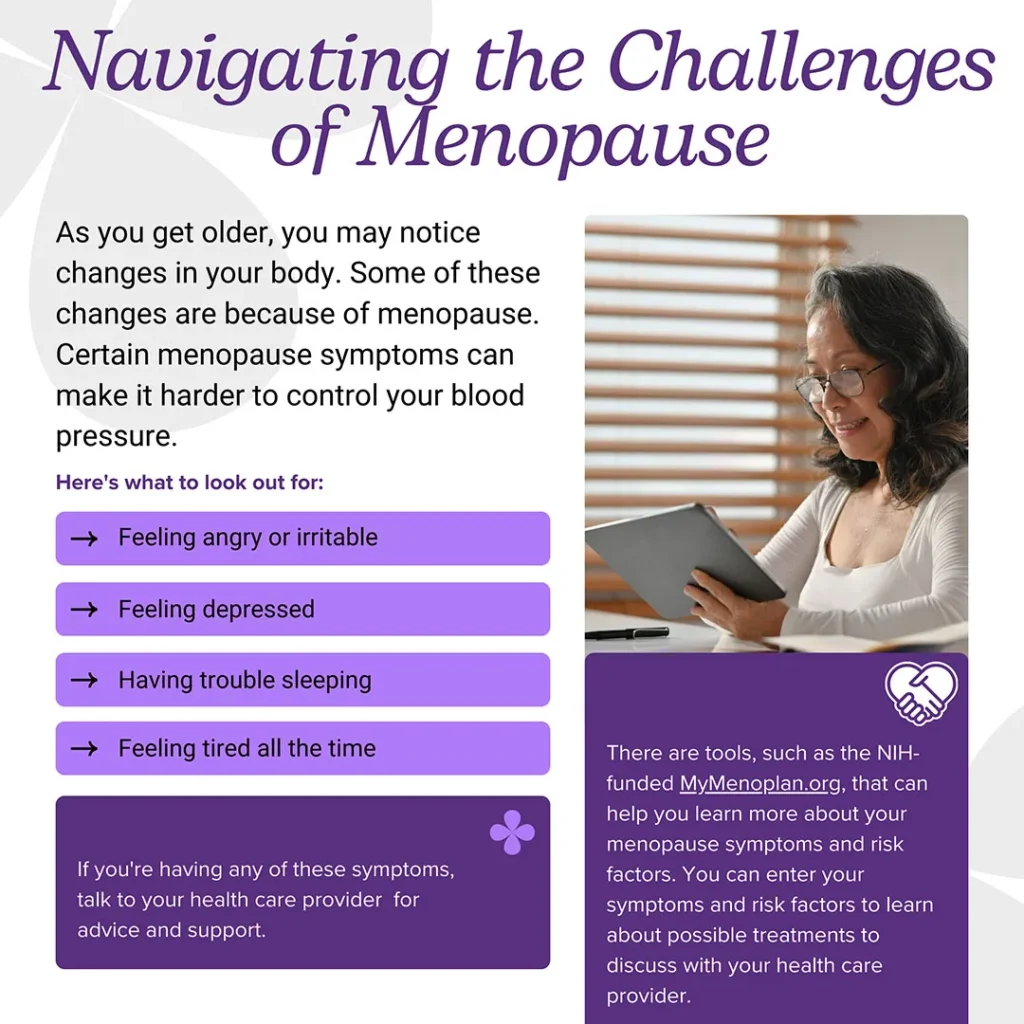Navigating Menopause: How Diet Can Ease Symptoms and Support Your Health
Menopause is a natural part of a woman’s life, marking the end of her reproductive years. It typically occurs in a woman’s late 40s to early 50s, although the exact age can vary. Menopause is characterized by the cessation of menstrual periods and a decrease in estrogen levels, which can lead to a variety of symptoms such as hot flashes, night sweats, mood swings, and sleep disturbances.
Diet plays a crucial role in managing menopausal symptoms and supporting overall health during this transitional period. By making informed food choices and incorporating specific nutrients into your diet, you can alleviate some of the discomfort associated with menopause and promote optimal health and well-being.
In this article, we will explore the impact of diet on menopausal symptoms and provide practical tips on how to navigate this stage of life with a focus on nutrition. We will also address common questions and concerns about menopause and offer guidance on how to support your health through dietary choices.
The Impact of Diet on Menopausal Symptoms
Many women experience a range of symptoms during menopause, including hot flashes, night sweats, mood swings, weight gain, and fatigue. While these symptoms are a natural part of the menopausal transition, they can be disruptive and affect a woman’s quality of life. Fortunately, diet can play a significant role in managing these symptoms and promoting overall well-being.
Certain foods and nutrients have been shown to have a positive impact on menopausal symptoms, while others may exacerbate them. By making smart dietary choices, you can help alleviate some of the discomfort associated with menopause and support your health during this time of change.
1. Hot Flashes and Night Sweats
Hot flashes and night sweats are common symptoms of menopause, affecting up to 75% of women. These sudden feelings of intense heat can be uncomfortable and disruptive, leading to sweating and discomfort. While the exact cause of hot flashes is not fully understood, hormonal changes are believed to play a role in their occurrence.
Certain foods and beverages have been linked to an increased risk of hot flashes, including spicy foods, caffeine, alcohol, and hot drinks. By avoiding these triggers and incorporating cooling foods into your diet, you may be able to reduce the frequency and severity of hot flashes and night sweats.
Foods that may help alleviate hot flashes include:
– Soy products: Soy contains phytoestrogens, plant compounds that mimic the effects of estrogen in the body. Research suggests that consuming soy products, such as tofu, tempeh, and edamame, may help reduce hot flashes in menopausal women.
– Flaxseeds: Flaxseeds are rich in lignans, plant compounds that have estrogen-like effects. Studies have shown that flaxseeds may help reduce the frequency and severity of hot flashes in menopausal women.
– Fruits and vegetables: Eating a diet rich in fruits and vegetables can help support overall health during menopause. These foods are high in antioxidants, vitamins, and minerals that can help reduce inflammation and support hormonal balance.
2. Mood Swings and Depression
Menopause can also be a time of emotional upheaval, with many women experiencing mood swings, irritability, and depression. Hormonal changes, sleep disturbances, and stress can all contribute to these symptoms, making it important to prioritize mental health during this time.
Diet can play a key role in supporting mood and emotional well-being during menopause. Certain nutrients, such as omega-3 fatty acids and B vitamins, have been linked to improved mood and reduced symptoms of depression. By incorporating these nutrients into your diet, you can support your mental health and emotional well-being during this transitional period.
Foods that may help support mood and reduce symptoms of depression include:
– Fatty fish: Fatty fish, such as salmon, mackerel, and sardines, are rich in omega-3 fatty acids. These essential fats have been shown to have anti-inflammatory effects and may help reduce symptoms of depression and anxiety.
– Leafy greens: Leafy greens, such as spinach, kale, and Swiss chard, are high in B vitamins, including folate and vitamin B6. These nutrients play a key role in neurotransmitter synthesis and can help support mood and emotional well-being.
– Nuts and seeds: Nuts and seeds are rich in magnesium, a mineral that plays a key role in mood regulation. Research suggests that magnesium may help reduce symptoms of depression and anxiety in menopausal women.
3. Weight Gain and Metabolic Changes
Many women experience weight gain and changes in metabolism during menopause, making it important to prioritize healthy eating habits and regular physical activity. Hormonal changes, decreased muscle mass, and lifestyle factors can all contribute to weight gain during this transitional period.
A balanced diet that emphasizes whole foods, lean proteins, healthy fats, and fiber can help support weight management and metabolic health during menopause. By focusing on nutrient-dense foods and portion control, you can maintain a healthy weight and support your overall well-being during this time of change.
Foods that may help support weight management and metabolic health during menopause include:
– Lean proteins: Lean proteins, such as poultry, fish, tofu, and legumes, can help support muscle mass and metabolism during menopause. Protein-rich foods can also help keep you feeling full and satisfied, reducing the risk of overeating.
– Whole grains: Whole grains, such as brown rice, quinoa, and oats, are high in fiber and can help support digestive health and blood sugar control. By choosing whole grains over refined grains, you can support weight management and metabolic health.
– Healthy fats: Healthy fats, such as avocado, olive oil, and nuts, are important for hormone production and overall health during menopause. Incorporating these fats into your diet can help support hormonal balance and reduce inflammation.
Practical Tips for Navigating Menopause with Diet
In addition to incorporating specific foods and nutrients into your diet, there are several practical tips you can follow to support your health during menopause. By making informed food choices and prioritizing self-care, you can navigate this transitional period with grace and ease.
1. Stay Hydrated
Hydration is important for overall health and well-being, especially during menopause. Dehydration can exacerbate symptoms such as hot flashes and fatigue, making it important to drink plenty of water throughout the day. Aim to drink at least 8-10 glasses of water daily and limit caffeine and alcohol, which can contribute to dehydration.
2. Prioritize Whole Foods
Whole foods, such as fruits, vegetables, whole grains, lean proteins, and healthy fats, should form the basis of your diet during menopause. These nutrient-dense foods provide essential vitamins, minerals, and antioxidants that can help support hormonal balance and overall health. Try to limit processed foods, sugary snacks, and refined grains, which can contribute to inflammation and weight gain.
3. Manage Stress
Stress can exacerbate menopausal symptoms and impact overall health and well-being. Practicing stress-reducing techniques, such as meditation, yoga, deep breathing, or mindfulness, can help support your mental health and emotional well-being during this transitional period. Prioritize self-care and make time for activities that bring you joy and relaxation.
4. Get Regular Exercise
Regular exercise is important for maintaining muscle mass, supporting metabolism, and promoting overall health during menopause. Aim for at least 150 minutes of moderate-intensity exercise per week, such as walking, swimming, or cycling. Strength training exercises can also help support bone health and muscle mass during this time of change.
5. Consider Supplements
In addition to a balanced diet, some women may benefit from taking supplements to support their health during menopause. Common supplements that may be helpful include:
– Calcium: Calcium is important for bone health and may help reduce the risk of osteoporosis during menopause. Aim to get 1,000-1,200 mg of calcium daily through food sources or supplements.
– Vitamin D: Vitamin D is important for calcium absorption and bone health. Many women are deficient in vitamin D, especially during the winter months. Aim to get 600-800 IU of vitamin D daily through food sources or supplements.
– Magnesium: Magnesium plays a key role in muscle function, energy production, and hormonal balance. Many women may benefit from taking magnesium supplements to support their health during menopause.
– Omega-3 fatty acids: Omega-3 fatty acids are important for heart health, brain function, and inflammation. Consider taking fish oil supplements to ensure you are getting an adequate intake of these essential fats.
FAQs about Menopause and Diet
Q: What role does diet play in managing menopausal symptoms?
A: Diet can play a significant role in managing menopausal symptoms and supporting overall health during this transitional period. By making informed food choices and incorporating specific nutrients into your diet, you can alleviate some of the discomfort associated with menopause and promote optimal health and well-being.
Q: Are there specific foods that can help alleviate hot flashes and night sweats?
A: Certain foods and nutrients have been shown to have a positive impact on hot flashes and night sweats. Soy products, flaxseeds, and fruits and vegetables are all foods that may help reduce the frequency and severity of these symptoms. By incorporating these foods into your diet, you may be able to alleviate some of the discomfort associated with hot flashes and night sweats.
Q: How can diet support mood and emotional well-being during menopause?
A: Diet can play a key role in supporting mood and emotional well-being during menopause. Foods rich in omega-3 fatty acids, B vitamins, and magnesium can help support mood regulation and reduce symptoms of depression and anxiety. By incorporating these nutrients into your diet, you can support your mental health and emotional well-being during this transitional period.
Q: What are some practical tips for navigating menopause with diet?
A: In addition to incorporating specific foods and nutrients into your diet, there are several practical tips you can follow to support your health during menopause. Stay hydrated, prioritize whole foods, manage stress, get regular exercise, and consider taking supplements to support your health during this transitional period.
In conclusion, menopause is a natural part of a woman’s life that can be managed with informed food choices and self-care practices. By incorporating specific foods and nutrients into your diet, you can alleviate some of the discomfort associated with menopausal symptoms and support your overall health and well-being. Prioritize whole foods, stay hydrated, manage stress, get regular exercise, and consider supplements to support your health during this transitional period. With the right approach, you can navigate menopause with grace and ease, embracing this new chapter of life with confidence and vitality.


